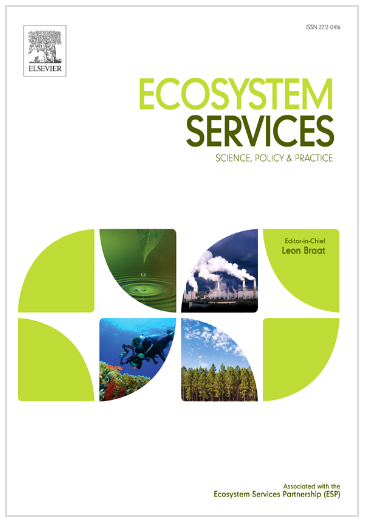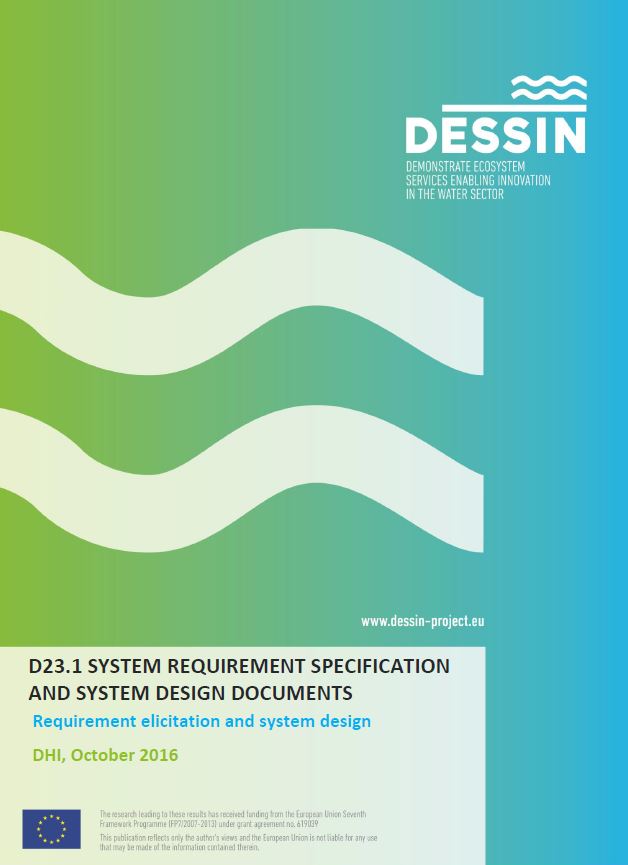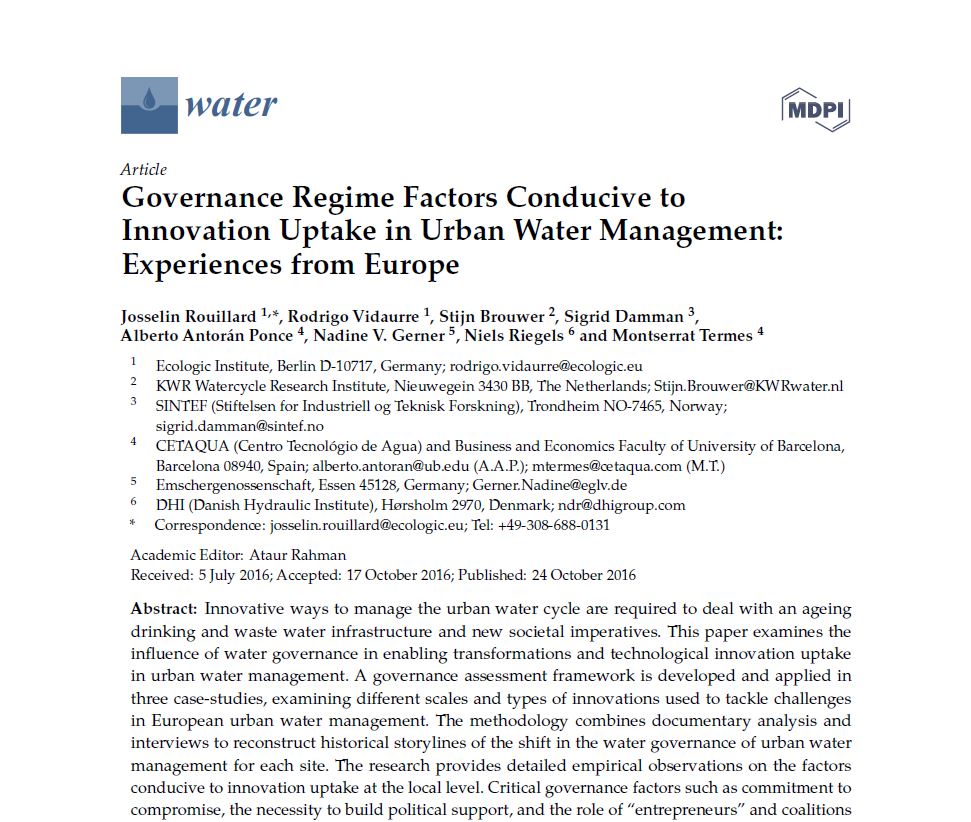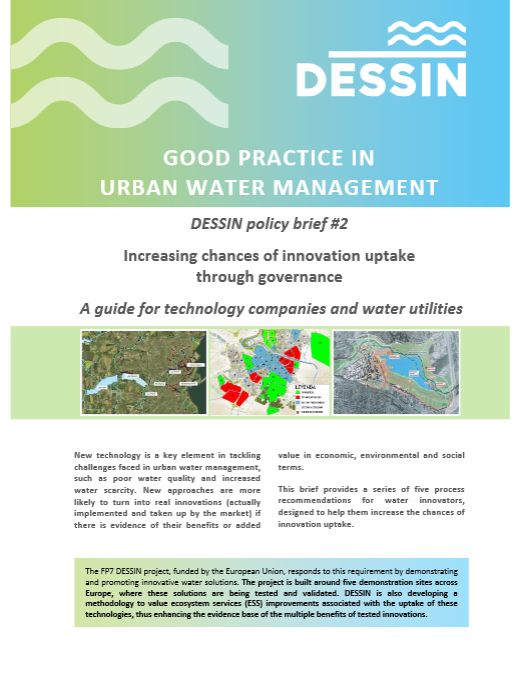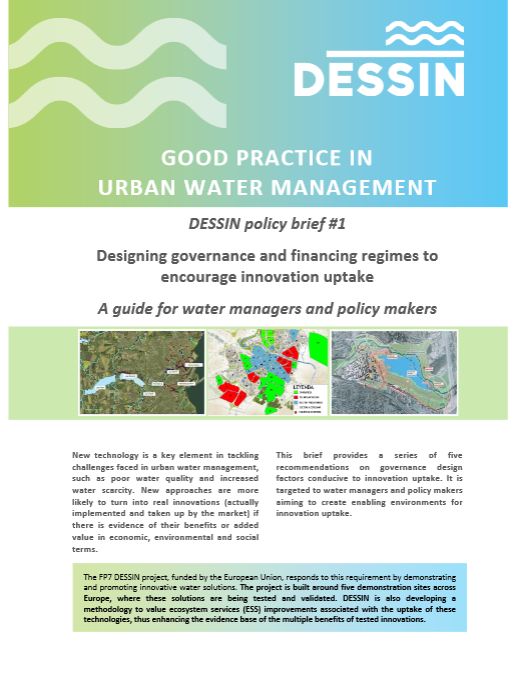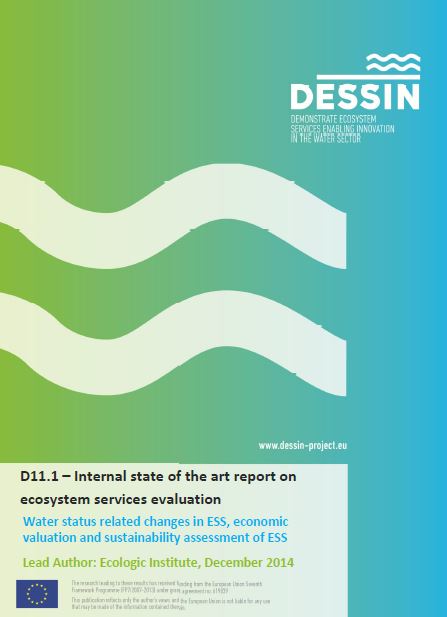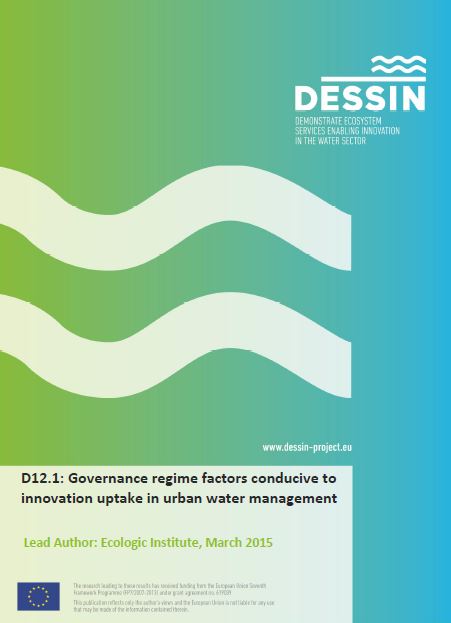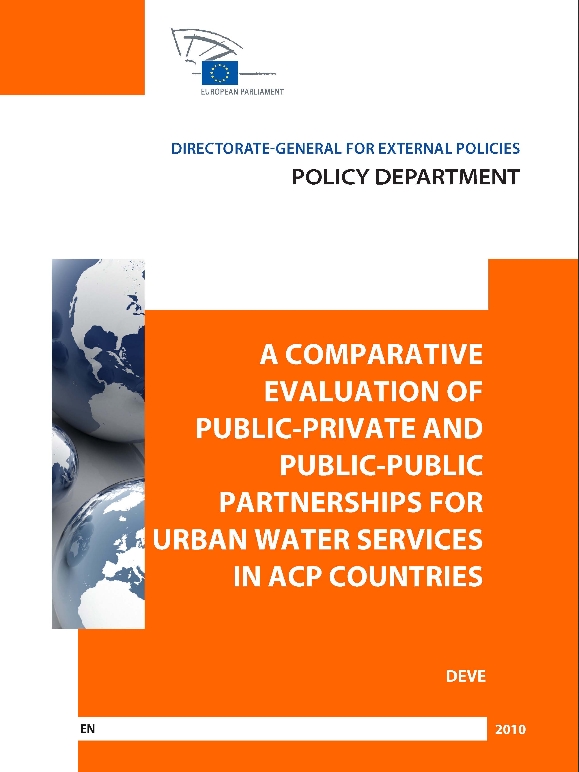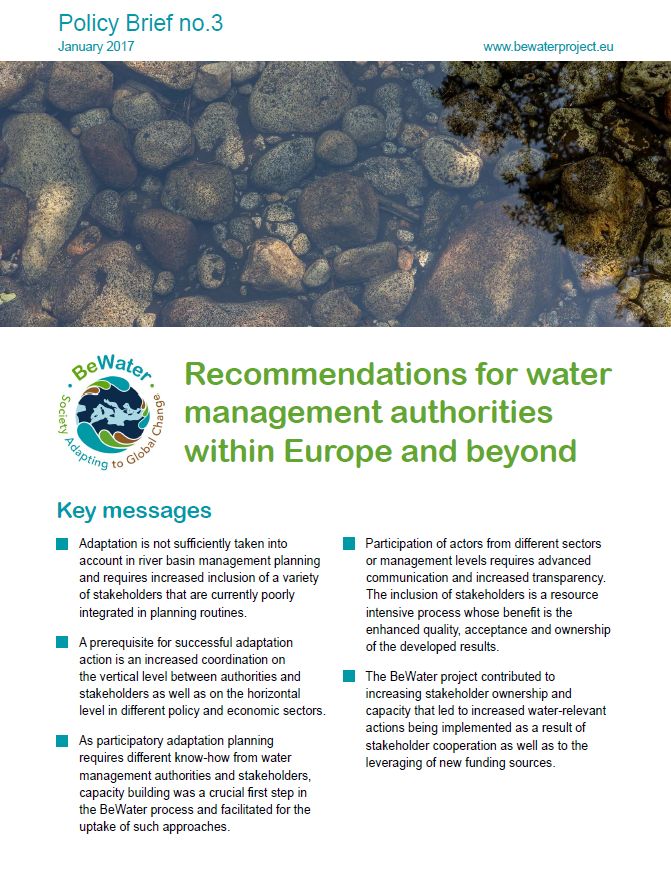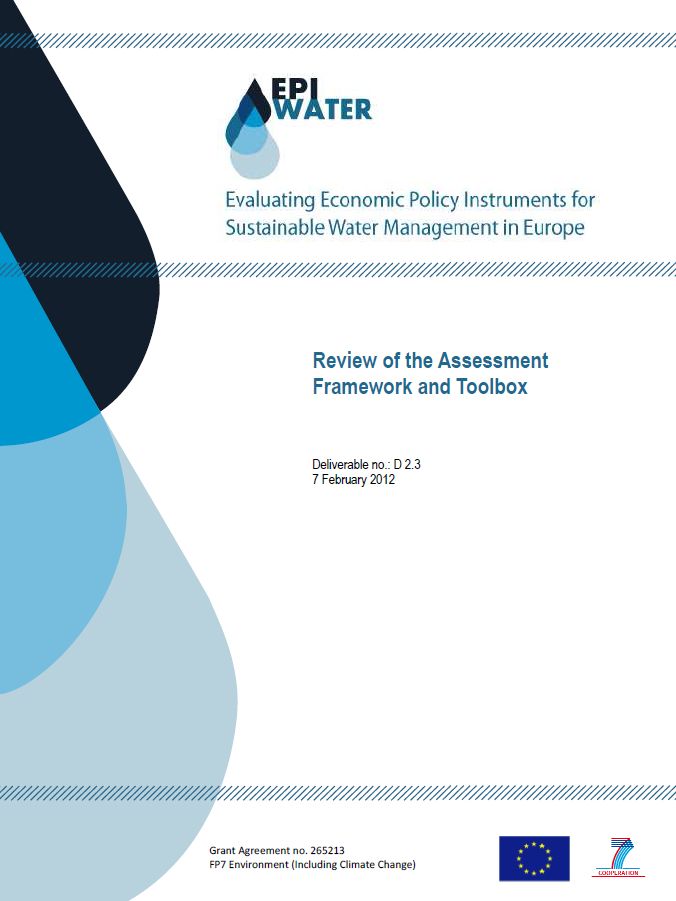Framework for Evaluating Changes in Ecosystem Services
- Publication
- Citation
Anzaldua, Gerardo et.al. 2017: Framework for evaluating changes in ecosystem services Part A: DESSIN Cookbook. Deliverable 11.2, DESSIN, European Union's Seventh Framework Programme for Research and Innovation Grant Agreement No. 619039.
Anzaldua, Gerardo et.al. 2017: Framework for evaluating changes in ecosystem services Part B: Companion Document. Deliverable 11.2, DESSIN, European Union's Seventh Framework Programme for Research and Innovation Grant Agreement No. 619039.
The DESSIN Ecosystem Services (ESS) Evaluation Framework is a methodology used to systematically assess the impacts of innovative solutions to water-related challenges taking into account environmental, economic and social perspectives. The framework consists of the DESSIN Cookbook, a Companion Document, a Supplementary Material File and a Case Reporting Template. The framework is aimed at decision-makers, practitioners and technology developers who want to evaluate the potential impacts of new technologies and water management measures on freshwater ecosystems and their services. The documents are available for download.
The Cookbook contains a set of instructions that guide the user through the steps of the evaluation, providing straightforward practical guidance on how to apply the theory of ecosystem services on the ground. The Companion Document provides detailed information on the theoretical background sustaining the framework. It contains a Glossary of agreed terminology to facilitate communication between the stakeholders participating in an evaluation. The Supplementary Material File provides standardized catalogues (e.g. lists of drivers, pressures, state and impact indicators) from which the users can select when conducting an evaluation. Lastly, the Case Reporting Template presents an outline to structure and present the evaluation results.
The DESSIN Project and Ecosystem Services Evaluation Framework
River basin managers are frequently faced with tough choices when deciding how to solve the water quality and quantity problems in their district. As water is a resource that cuts across economic sectors and is central also to nature, water managers have to incorporate environmental, economic and social perspectives into their decision-making. To support this challenging task, the DESSIN project has developed a methodology that uses the concept of ecosystem services to systematically evaluate the impact of innovative solutions to water-related challenges.
One of the key features of the DESSIN ESS Evaluation Framework is its ability to assist in linking the proposed or implemented solution (i.e. a technical or management measure) to the specific ecosystem services it may influence. The framework acts by guiding the user to define specific capabilities of the solution (e.g. reduction of contaminant dissolved in the water) and to relate these to specific types of ecosystem services. The changes in those ecosystem services influenced by the solution are then evaluated.
To ensure its compatibility with ongoing work at the European level on ecosystem services and Water Framework Directive implementation, the framework builds upon the Common International Classification of Ecosystem Services (CICES) and the Driver, Pressure, State, Impact, Response (DPSIR) adaptive management scheme.
Application of the Framework on Various Case Study Sites
The framework has been applied and tested in case study sites in Germany (Emscher River), Denmark (Aarhus River), the Netherlands (Westland area), Norway (Hoffselva River), Greece (City of Athens) and Spain (Llobregat River). Some of the innovative solutions evaluated at these test sites include sewer mining, local treatment of combined sewer overflows (e.g. using cross-flow lamella settler units), real-time control (RTC) of large-scale sewer systems, aquifer storage and recovery (ASR) combined with reverse osmosis (RO) treatment, a hydraulic barrier against sea water intrusion and a warning system for bathing water quality.
In each case, the DESSIN framework was used to assess the impact of the solutions on all types of ecosystem services – including provisioning services (e.g. food and water for consumption), regulating and maintenance services (e.g. mediation of toxins by an ecosystem), and cultural services (e.g. aesthetic and recreation). Feedback from this practical testing ensures that the DESSIN framework is useful for its target users to understand the true impact of innovative water solutions.
Ecologic Institute's Role
Ecologic Institute coordinated the design and development of the DESSIN Ecosystem Services Evaluation Framework and was the lead author of the DESSIN Cookbook and the Companion Document. Ecologic Institute was also responsible for translating the theory on economic valuation of ecosystem services into practical guidance.
